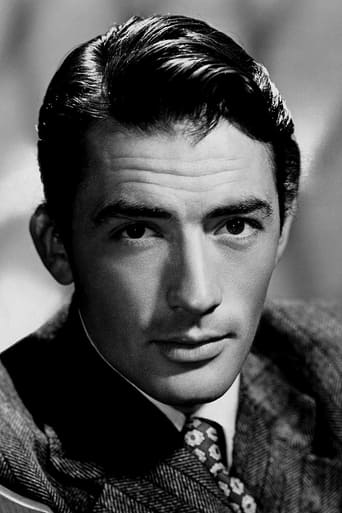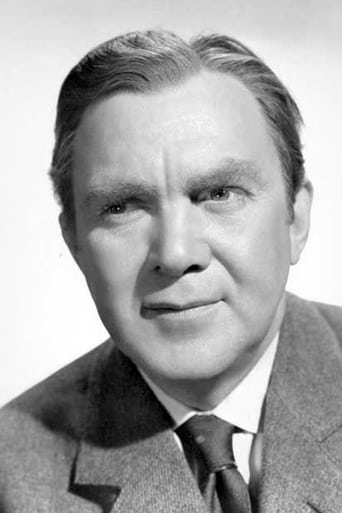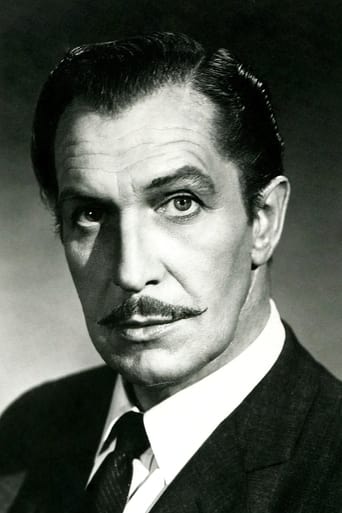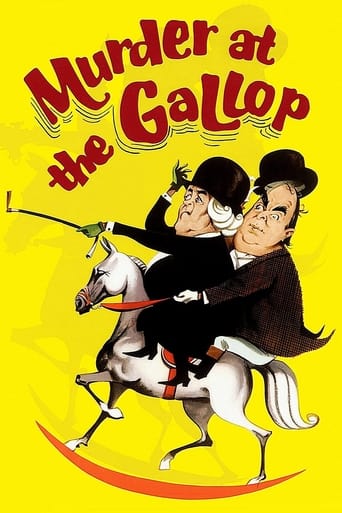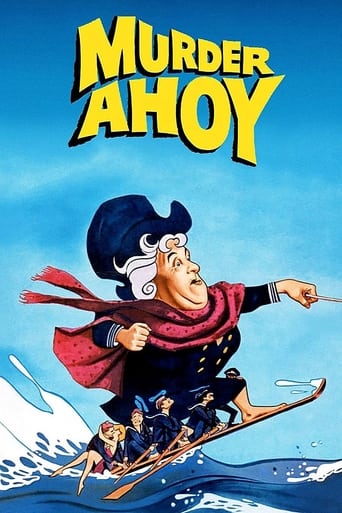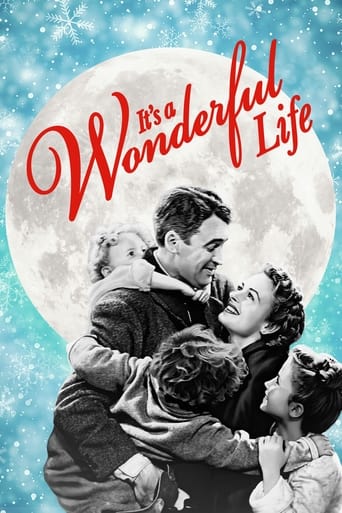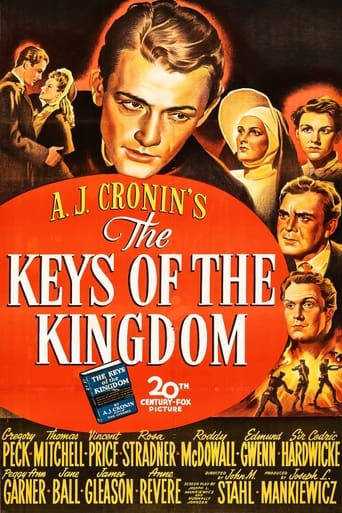
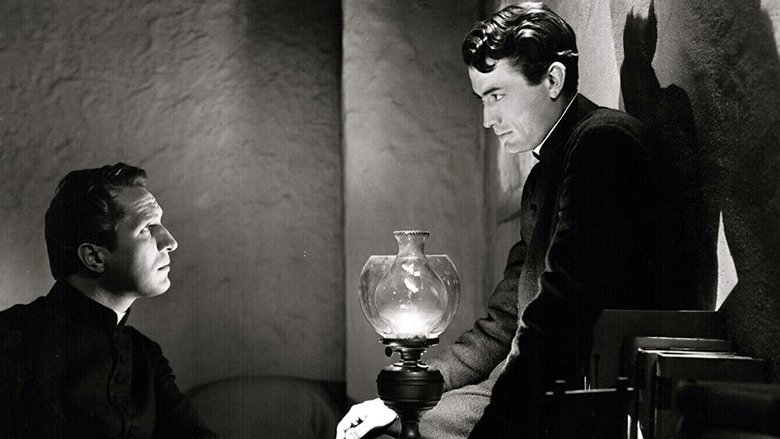
The Keys of the Kingdom (1944)
A young priest, Father Chisholm is sent to China to establish a Catholic parish among the non-Christian Chinese. While his boyhood friend, also a priest, flourishes in his calling as a priest in a more Christian area of the world, Father Chisholm struggles. He encounters hostility, isolation, disease, poverty and a variety of set backs which humble him, but make him more determined than ever to succeed.
Watch Trailer
Cast


Similar titles
Reviews
Without going into storyline details, this 1944 title is uncannily similar to the story events of the later "Inn of the Sixth Happiness", produced in 1958. What is baffling is that the "..Sixth Happiness" movie is claimed to be the biographical account of Gladys Aylward; yet it seems to be "Keys of the Kingdom" in new clothes. Story similarities: (1) unlikely missionary called to China (2) must build their mission with few resources (3) wins favor of local provincial leader (4) starts a children's home (5) caught in the middle of the Chinese civil war (6) humble servant, recognized for a lifetime of service.I have looked online for a comparison of these two titles, without results but I believe the storyline must have emerged from the same source. I recommend watching both, then draw your own conclusions.
The trailer for "The Keys of the Kingdom" compares the 1944 film to the prior classics "Goodbye Mr. Chips" and "How Green Was My Valley," and the comparisons are apt. Like the two earlier films, "The Keys of the Kingdom" is the narrated story of a man's life with present-day scenes as bookends. All three films follow ordinary men who leave indelible legacies, but fail to grasp the worth of their own accomplishments. While Mr. Chips is an English teacher and young Huw Morgan is a Welsh miner's son, Father Francis Chisholm is a Scottish missionary priest in China.In this well written adaptation of the A. J. Cronin novel by Joseph L. Mankiewicz and Nunnally Johnson, Gregory Peck underplays the role of Francis Chisholm effectively and with the solid dignity that distinguished Peck's long career. In only his second screen role, Peck is a Christ-like figure who accepts people as they are, which puts him at odds with the dogmatic bureaucrats that run his church. Vincent Price is colorful as Angus Mealy, an ambitious fellow priest who puts personal advancement above godliness, and Thomas Mitchell is equally fine as Willie Tulloch, a doctor who puts his service to humanity above religion. Besides Price and Mitchell, the film has a rich cast of such other outstanding character players as Edmund Gwen, Anne Revere, Cedric Hardwick, Sara Allgood, Benson Fong, and Roddy McDowall. Each of these fine performers makes even the smallest role memorable. While Rose Stradner is fine as the Reverend Mother, the film treads a delicate line with its subtle hint at a love story between her and Father Chisholm. Perhaps there was an underlying attraction between the two that went beyond mere friendship, but, if so, that was daring territory to explore during the 1940's.While "Keys of the Kingdom" runs more than two hours, the engrossing story should hold the attention of viewers who loved "How Green Was My Valley" and "Goodbye Mr. Chips." The film provides an emotional payoff that equals those in the earlier films, and damp eyes and a sniffle or two will likely affect even the hardest hearts. While at times sentimental in the best sense of the word, "The Keys of the Kingdom" also has an important message of acceptance that is particularly relevant today. Father Chisholm does not criticize "heathens" or "atheists," but rather respects their points of view and loves them for their good deeds regardless of their philosophies. When one of Chisholm's non-believer friends lays dying, the priest does not pressure him to convert on his deathbed, and the dying man thanks his friend for his respect and for allowing him to die as he had lived. The film certainly makes a strong point when the kindest, most generous works were those done by the non-believers, the doctor and Mr. Chia, the Chinese landowner, while the most selfish individual was the self-serving social-climbing priest played by Vincent Price. Peck's acceptance of and offer of friendship to the Protestant missionaries was yet another example of the man's Christianity, which placed him at odds with his own church and did more to illustrate Christ's message than the bureaucratic church hierarchy that would not even send money to fund the mission and told him to convert people of means. Although there are a few slow stretches and the finished film is not the classic that its creators intended, "The Keys of the Kingdom" is rewarding and a showcase for a young Gregory Peck, who was poised at the dawn of his stardom.
I first saw this movie some 35 years ago. It is a brilliant move that goes to the heart of showing the difference between a spiritual relationship and religion. It covers clearly so many ethical issues of life.While the name of the movie may not in itself draw a person to watching it, it is nevertheless well worth watching. The entire cast of this movie was so well chosen that once seen in these roles it is hard to imagine them as playing any other part. Gregory Peck in the role of Father Francis Chisholm, Thomas Mitchell as Dr. Willie Tullock and Vincent Price as he Rev. Angus Mealey are a few examples of the excellent casting.A movie that promotes great introspection and a lot of tears
What a wonderful story of a man, despite much adversity, contributes himself to the Chinese community he loves so much. It is amazing how Peck makes it so effortless (even in his only second film)in portraying a young man to one in his twilight years. He personifies morality and quiet integrity in this film, reminiscent to the role that he would play nearly twenty years later in TO KILL A MOCKINGBIRD.The supporting cast which performs more than ably is led by Cedric Hardwicke playing a monsignor who was initially critical of the Peck character but emerges having respect for him after reading his memoirs (which form the narration for the film. Others include Thomas Mitchell as the irreverent self-proclaimed atheist who does much to provide the witty humour for the film, Edmund Gwenn as Peck's plucky mentor at the seminary who uses the term "ecclesiastical mechanic" to describe priests who are inflexible and bureaucratic, and Rose Stradner as the Mother Superior who falls in love with Peck (you only get a hint of this).One of the highlights is the film's efforts in portraying the Chinese in a sensitive manner in terms of the customs shown and dialects used. This is very unlike films of its era which tended to portray Asians in a more stereotypical fashion.


